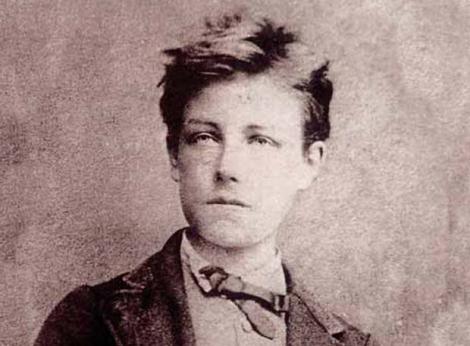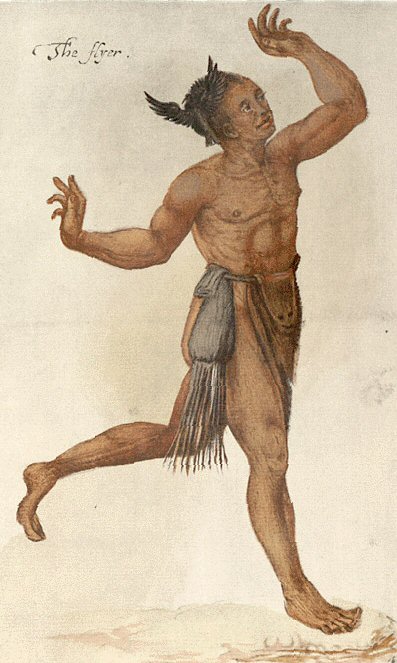And the Lord came unto the plains of Gath. And he was footsore, having walked for many days without rest. And he sat him down upon one of the tussocks which grow upon the plains of Gath. Then there came a widow woman driving before her a goat. And the goat was thin and bony and of Satanic mien. And the Lord said unto the widow woman:
“Woman! I am your Lord and I am footsore having walked for many days without rest. I have great thirst. Succour me with milk from your goat. This I command.”
Thereupon the widow woman did stop upon her journey and she tied her goat with a halter to a post that was stuck fast in the earth upon the plains of Gath. And she sat down upon the tussock next to the Lord and took from her pouch an infusion of herbs and roots all rolled in the leaf of a phryxinga shrub and one end of this she ignited with fire from heaven and she breathed in the fumes thereof.
“My goat is old and tired and thin and bony and has no milk to give,” said the widow woman.
“Then thou shalt roast in the pits of hell for eternity,” said the Lord.
But before the Lord could make good his threat there came passing upon the plains of Gath several more widow women, some with goats and some with widows’ mites. And the Lord was sore affrighted. Then the widows all together began a keening and a caterwauling and made so mighty a din that the Lord placed his hands over his ears. And the goats did join in, braying, and the widows’ mites did join in, buzzing. And so great was the racket of the keening and the braying and the buzzing that the sun itself trembled and hid and darkness fell upon the plains of Gath.
Then from out of the darkness there came a minstrel toiling across the plains of Gath. And when he came upon the Lord and the widow women and the goats and the widows’ mites he did stop and he placed his lyre upon the ground and listened. And when after many hours passed and the hubbub ceased the minstrel did speak unto the widow women.
“Women! I have come far, for I am of a brutish Germanic tribe, a stranger in the plains of Gath. I am a minstrel, but I have put aside my lyre for I am bewitched by the din of your keening and caterwauling, and the braying of your goats, and the buzzing of your widows’ mites. Come follow me, on the long journey back to the tenebrous Teutonic forests from whence I came, that you might keen and caterwaul and bray and buzz to my tribespeople, for your racket will be as balm to their ears in the land of Improv.”
But before the widow women could follow the minstrel from that place, the Lord rose up from his tussock and with great fury he shouted,
“Is there not one among you who will give succour to your Lord in his grievous state upon the plains of Gath in the darkness?”
And there was silence. And then the sun did reappear, flooding the plains of Gath with light, and close by the tussock a fountain burst forth from the soil, shooting a jet of pure bubbling water high into the air. And the Lord did stand beneath it with his head upturned and his mouth open and he drank of the water. And when he was sated he took a rod and a staff and began to smite the widow women and the goats and the minstrel in terrible rage. But the widows’ mites were tiny and they buzzed away from the scene of the smiting. They buzzed to a cluster of huts just beyond the horizon where there lived a satrap and his minions. And hearing the buzzing of the widows’ mites the satrap and his minions took up their clubs and their staves and their sticks and they did rush like flies across the plains of Gath to the tussock where the Lord was in a great frenzy. And the lyre of the minstrel lay shattered and broken upon the ground.
And the satrap and his minions did set upon the Lord with all their might. And when he was bashed senseless they carried him away across the plains of Gath to their cluster of huts where they locked him up in durance vile. And the widow women and their goats did lick their wounds and dust themselves down and they were joined by the widows’ mites and they did follow the minstrel on a long journey to the tenebrous Teutonic forests where they did keen and caterwaul and bray and buzz and bewitch the tribespeople of Improv, yea unto every generation.
And in his dungeon in a cluster of huts upon the plains of Gath the Lord did bewail his fate. And there came unto him an angel, saying:
“Lord, I am an angel sent by another, greater Lord than thee. I come from haunts of coot and hern, I make a sudden sally. And sparkle out among the fern to bicker down a valley. It is the valley of the shadow of death and the valley along which you must walk unless you buck your ideas up. I shall fling open the doors of your prison if you will but pledge to crawl upon your belly across the plains of Gath and beyond, all the way to the far remote tenebrous Teutonic forests, there to seek forgiveness from the widow women and their goats and their widows’ mites and the minstrel. Do as I command, and when again they keen and caterwaul and bray and buzz, place not your hands over your ears, but stand upon a podium and wave a baton. And your eyes shall glint and your lank and greasy tresses will become as a bouffant. And you will be called Maestro.”
And the Lord did as he was bid by the angel, and he betook himself upon his belly to Improv in Ülm.
Here endeth the lesson.




